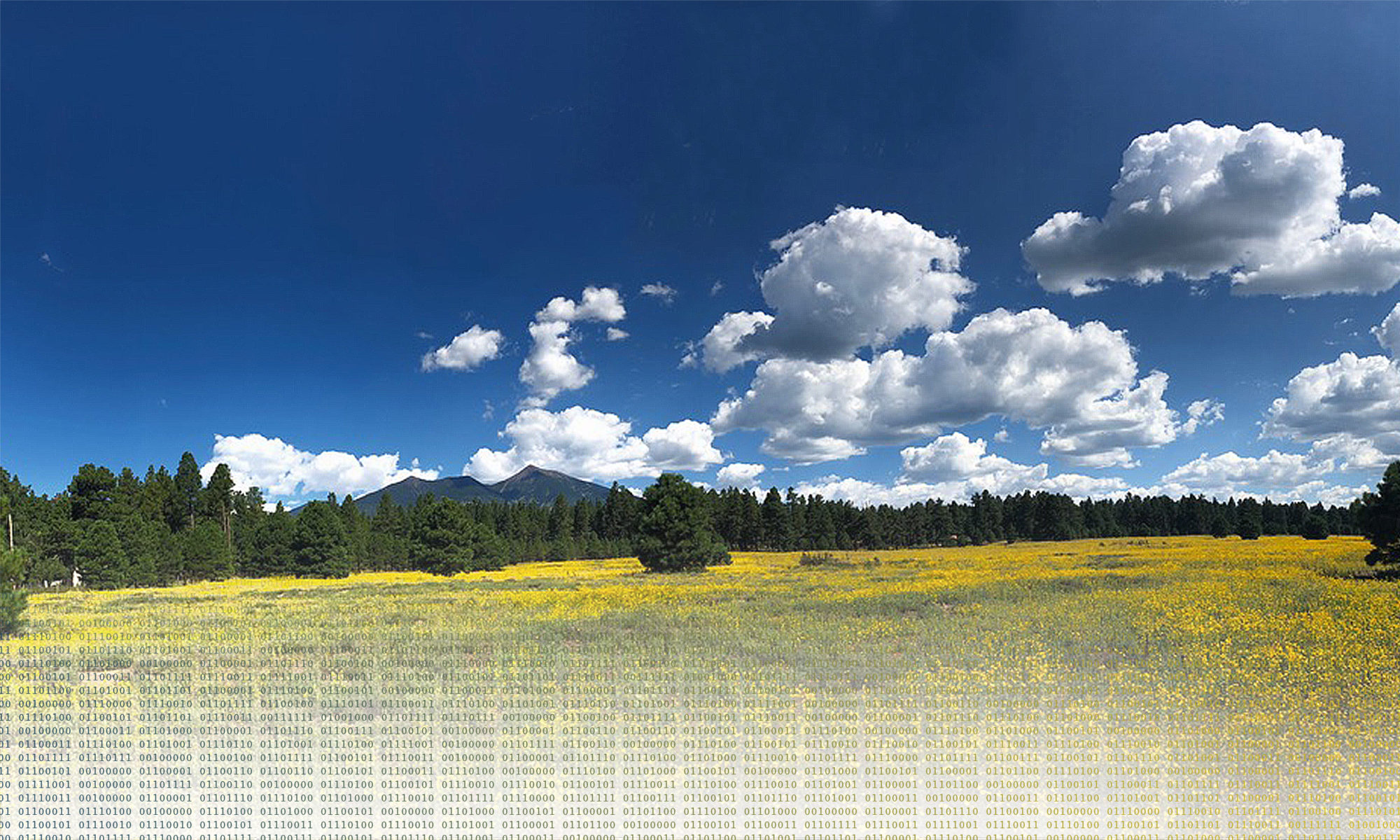13 | 14 11:30 am-12:20 pm September 14, 2020 FEWSION, a mesoscale urban ecology informatics project FEWSION is mapping the supply chains and network structures of US cities. FEWSION™ has built the first complete empirical description of the U.S. food, energy, and water system (the FEW Nexus) so that every citizen and policymaker in the U.S. can see where their food, energy, and water come from. The data product, real-world applications, and key science results will be reviewed in this short lecture. For background details see the website at https://fewsion.us/.
| 15 | 16 | 17 | 18 All day September 18, 2020-September 27, 2020 https://www.scifest2020.org/ The Flagstaff Festival of Science offers more than 60 free STEM- and STEAM-based activities. This year (due to COVID-19), the festival is entirely virtual. Tune in for live or pre-recorded events. You can find the full schedule here.
| 19 All day September 19, 2020-September 27, 2020 https://www.scifest2020.org/ The Flagstaff Festival of Science offers more than 60 free STEM- and STEAM-based activities. This year (due to COVID-19), the festival is entirely virtual. Tune in for live or pre-recorded events. You can find the full schedule here.
|
20 All day September 20, 2020-September 27, 2020 https://www.scifest2020.org/ The Flagstaff Festival of Science offers more than 60 free STEM- and STEAM-based activities. This year (due to COVID-19), the festival is entirely virtual. Tune in for live or pre-recorded events. You can find the full schedule here.
| 21 All day September 21, 2020-September 27, 2020 https://www.scifest2020.org/ The Flagstaff Festival of Science offers more than 60 free STEM- and STEAM-based activities. This year (due to COVID-19), the festival is entirely virtual. Tune in for live or pre-recorded events. You can find the full schedule here. 11:30 am-12:20 pm September 21, 2020 Cyberinfrastructure for interdisciplinary stable isotope science Data on natural variation of the ratios of stable isotopes support a vast array of research applications that trace energy and mass transfer within and among Earth systems. Such data have been collected by Earth scientists, ecologists, and social and behavioral scientists, among others, for more than a half century, and present both exciting opportunities and major challenges for disciplinary and large-scale interdisciplinary research. Three key challenges facing many or most researchers include 1) an ongoing transformation from boutique data production in specialist laboratories to a broader, more decentralized model of measurements enabled by simpler, lower-cost technologies, 2) the need in most applications to discover, access, and integrate baseline data from prior work, including out-of-discipline datasets, and 3) a growing demand for tools supporting standardized, quantitative, and rigorous analysis of larger data sets in research ranging from discovery science to mission-focused applications. I will introduce a series of initiatives stemming from our group and the broader interdisciplinary stable isotope community that tackle each of these challenges, with some discussion of emerging opportunities and lessons learned.
| 22 All day September 22, 2020-September 27, 2020 https://www.scifest2020.org/ The Flagstaff Festival of Science offers more than 60 free STEM- and STEAM-based activities. This year (due to COVID-19), the festival is entirely virtual. Tune in for live or pre-recorded events. You can find the full schedule here.
| 23 All day September 23, 2020-September 27, 2020 https://www.scifest2020.org/ The Flagstaff Festival of Science offers more than 60 free STEM- and STEAM-based activities. This year (due to COVID-19), the festival is entirely virtual. Tune in for live or pre-recorded events. You can find the full schedule here.
| 24 All day September 24, 2020-September 27, 2020 https://www.scifest2020.org/ The Flagstaff Festival of Science offers more than 60 free STEM- and STEAM-based activities. This year (due to COVID-19), the festival is entirely virtual. Tune in for live or pre-recorded events. You can find the full schedule here.
| 25 All day September 25, 2020-September 27, 2020 https://www.scifest2020.org/ The Flagstaff Festival of Science offers more than 60 free STEM- and STEAM-based activities. This year (due to COVID-19), the festival is entirely virtual. Tune in for live or pre-recorded events. You can find the full schedule here.
| 26 All day September 26, 2020-September 27, 2020 https://www.scifest2020.org/ The Flagstaff Festival of Science offers more than 60 free STEM- and STEAM-based activities. This year (due to COVID-19), the festival is entirely virtual. Tune in for live or pre-recorded events. You can find the full schedule here.
|
27 All day September 27, 2020-September 27, 2020 https://www.scifest2020.org/ The Flagstaff Festival of Science offers more than 60 free STEM- and STEAM-based activities. This year (due to COVID-19), the festival is entirely virtual. Tune in for live or pre-recorded events. You can find the full schedule here.
| 28 11:30 am-12:20 pm September 28, 2020 Leveraging atmospheric observations to constrain regional controls on carbon fluxes Climate change is driven primarily by anthropogenic emissions of greenhouse gases, chief among them carbon dioxide and methane. One of the most fundamental challenges in carbon cycle science is to anticipate how the “natural” oceanic and terrestrial components of the carbon cycle will act to mitigate or to amplify the impact of human emissions. Because the atmosphere preserves signatures of emissions and uptake (a.k.a. fluxes) of greenhouse gases at the earth’s surface, spatiotemporal variability in observations of atmospheric concentrations of greenhouse gases can be used to tackle this challenge. While the majority of studies using atmospheric observations primarily aim to quantify biospheric and oceanic carbon fluxes for various regions and at various spatiotemporal scales, the search for a net flux is only a steppingstone towards the process-based understanding that is critical to constraining projections of carbon balance under changing climate conditions. Given the increasing awareness of challenges posed by equifinality in mechanistic modeling, getting the right “number” for a snapshot in time is also not sufficient to anticipate responses to changing conditions. This talk will present examples of recent studies that attempt to more directly constrain terrestrial carbon flux responses to climatic variability at synoptic to interannual scales. These include the use of remote sensing observations of solar induced fluorescence, the diagnosis of the geographic and meteorological drivers of interannual variability in the North American carbon sink, the role of synoptic-scale meteorological variability in controlling net carbon uptake, and the particular challenge of constraining ecosystem respiration.
| 29 | 30 | October | October | October |

